Gambling: Perfect storm predicted in December, experts say
- Published
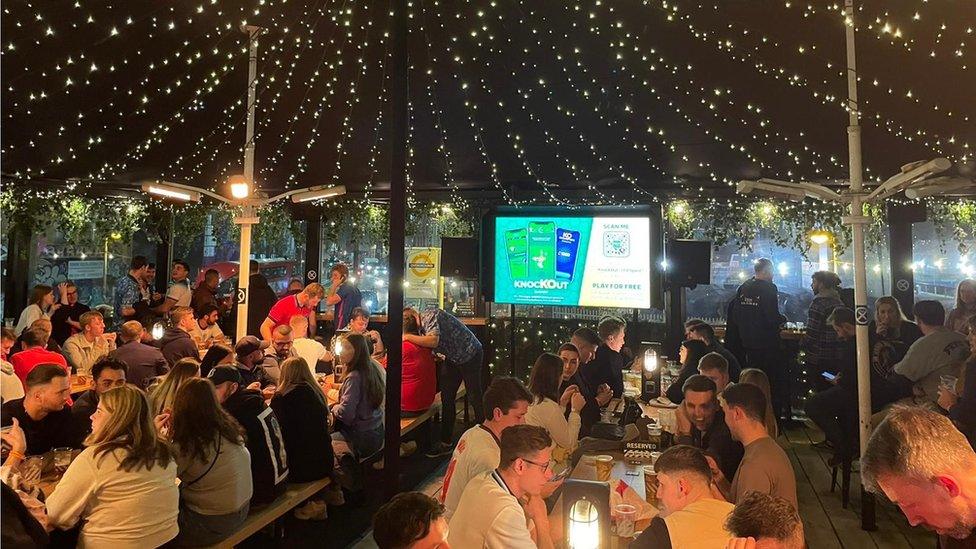
There has been a "whistle-to-whistle" ban on betting marketing for these World Cup finals
A winter World Cup, a cost-of-living crisis and the run-up to Christmas coinciding are creating the "perfect storm" for problem gambling, experts have warned. New draft laws to rein in the impact of online gambling are expected, but there has been a long wait to find out more about the government's plans.
The World Cup is the "Mecca for gambling", according to James Grimes - a man who knows something about gambling.
During the 2014 men's football World Cup, in the grip of a gambling addiction, he walked to his local pawnshop. In his bag he carried an Xbox, to trade for some cash for his next bet.
He quickly poured the £100 he got in return into bets on games spread across the tournament. As quick as it had come, the money vanished.
"Betting big on a bigger game gave me a bigger buzz - but the increased buzz means increased addiction and increased dependency," he says.
"You get that overwhelming feeling that goes to the part of you brain that hypnotises you. And you get lost in that moment.
"Every second of every day in the World Cup was consumed with planning what bets I was going to do," he says, explaining it was an addiction mostly paid for with borrowed cash.
Perfect storm
Sportradar, a sports data company, expects there will be more than £860m ($1.03bn) "wagered on each match" during the men's World Cup.
Zoe Osmond, chief executive of GambleAware, warns "with the sheer volume of football and the amount of betting ads, it can be easy to get carried away with betting".
"This should be an enjoyable time for all football fans," she says.
"As the cost-of-living crisis bites and people feel the pinch in the run-up to Christmas, this could create a perfect storm where fans resort to gambling as a way to cope."
Mr Grimes, now in recovery from a 12-year addiction, says his "gambling brain" would have convinced himself that the way through a cost-of-living crisis "is by gambling". "There's hundreds of thousands of people out there like that right now," he says.
And the World Cup is "ripe for exploitation" by gambling companies, he warns.
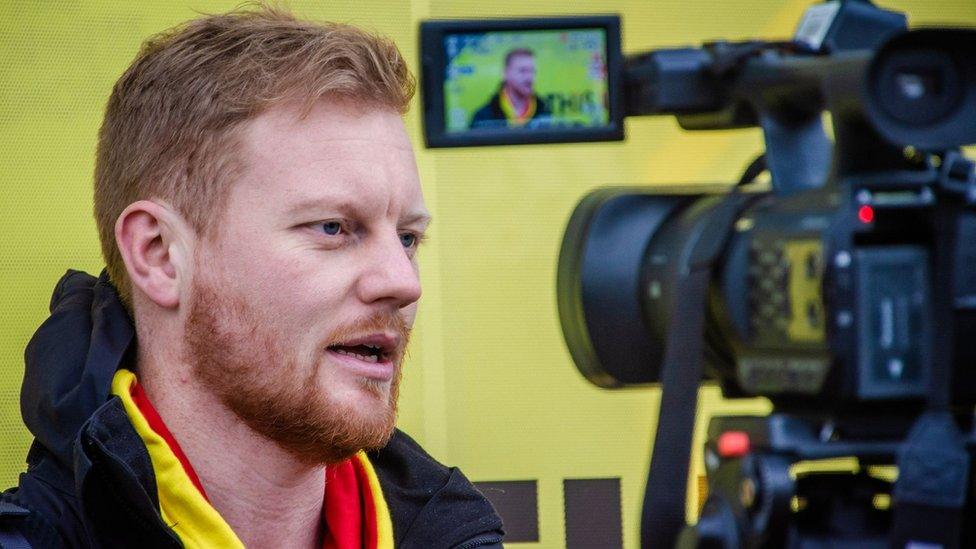
Mr Grimes now campaigns to end all gambling advertising and sponsorship in football
Betting on football is just a gateway to the more addictive and more profitable forms of online betting, according to Mr Grimes.
The online gambling sector remains free from many of the regulations applied to real world betting, where stakes on fixed-odds betting terminals are capped at £2.
Online football betting raised £1.1bn last year - the largest by far of all sport betting sectors, according to, external the Gambling Commission, but online casino games dominate the whole sector.
Gambling companies use adverts "deliberately designed to target young football fans to draw them in gambling, with the intention to then move them across to more addictive forms of online gambling", Mr Grimes says.

Where to get help
The NHS addiction support website, external outlines what help is available.
GamCare operates the National Gambling Helpline, external, providing information, advice and support for anyone affected by gambling problems - advisers are available 24 hours a day on Freephone 0808 8020 133 or via web chat.
Gamblers Anonymous provides a list of support meetings for problem gamblers in Scotland here, external and in England, Wales and Northern Ireland here., external
Further sources of support can be found on the BBC Action Line page.

Younger gamblers, making their first bet, are more likely to use online gambling apps.
Online gambling is set up to "capture" users, who may have only joined to make small bets, according to Dr Heather Wardle, a sociologist at Glasgow University and expert on the impact of gambling.
She says: "The whole industry is based on keeping you spending, and for the vast majority of people that means to keep on losing.
"They upsell people to a higher-risk products that have a higher risk of harms, such as online casinos."
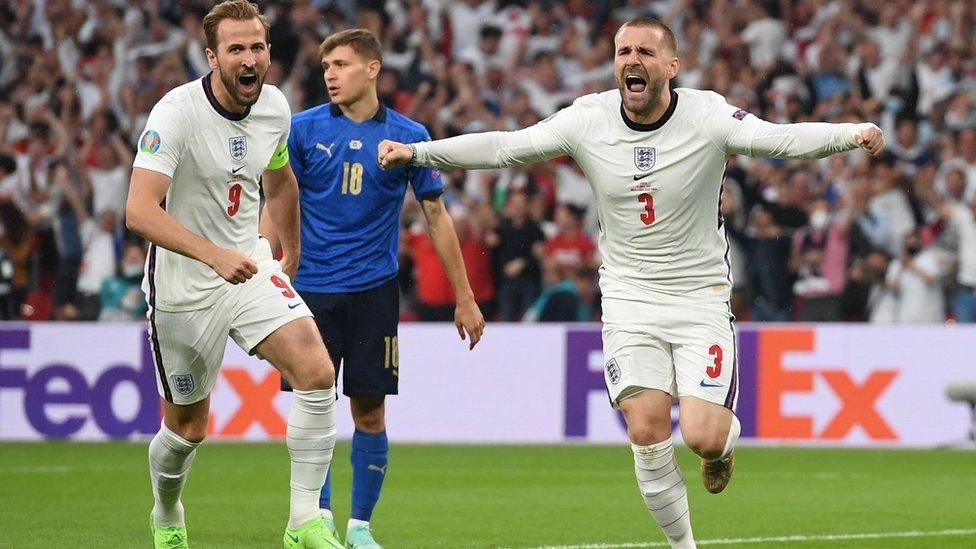
A whistle-to-whistle ban on TV gambling adverts during football games during the 2020 Euros reduced their exposure to children by 97%, according to the Betting and Gaming Council
Betting advertising prompts about one-third of gamblers to place a bet they would not have otherwise made, a study by Dr Wardle found., external
While world cups normally attract heavy marketing spend, new stricter rules came in ahead of this tournament. Famous figures, such as Cristiano Ronaldo, with strong appeal to under-18s have been banned from appearing in betting and gambling adverts in any media.
Betting advertising and sponsorship must also "comply with strict guidelines and safer gambling messaging is regularly and prominently displayed", the Betting and Gaming Council (BGC) - the gambling industry's trade body - point out.
There has been a "whistle-to-whistle" ban on betting marketing - meaning no betting adverts appear on TV during from the start to the end of each football game.
The same ban was in place during Euro 2020, which recorded a 47% drop in TV betting adverts compared to the 2018 World Cup.
But there has been a boom in non-TV marketing. Latest figures show betting companies spent five times more on online marketing than on TV commercials.
Between 2014 and 2017, companies increased their marketing spend by 56% - including £301m through "affiliate" website such as tipsters and £149m through social media.
"The government has previously stated research did not establish a causal link between exposure to advertising and the development of problem gambling," BGC spokesman said.
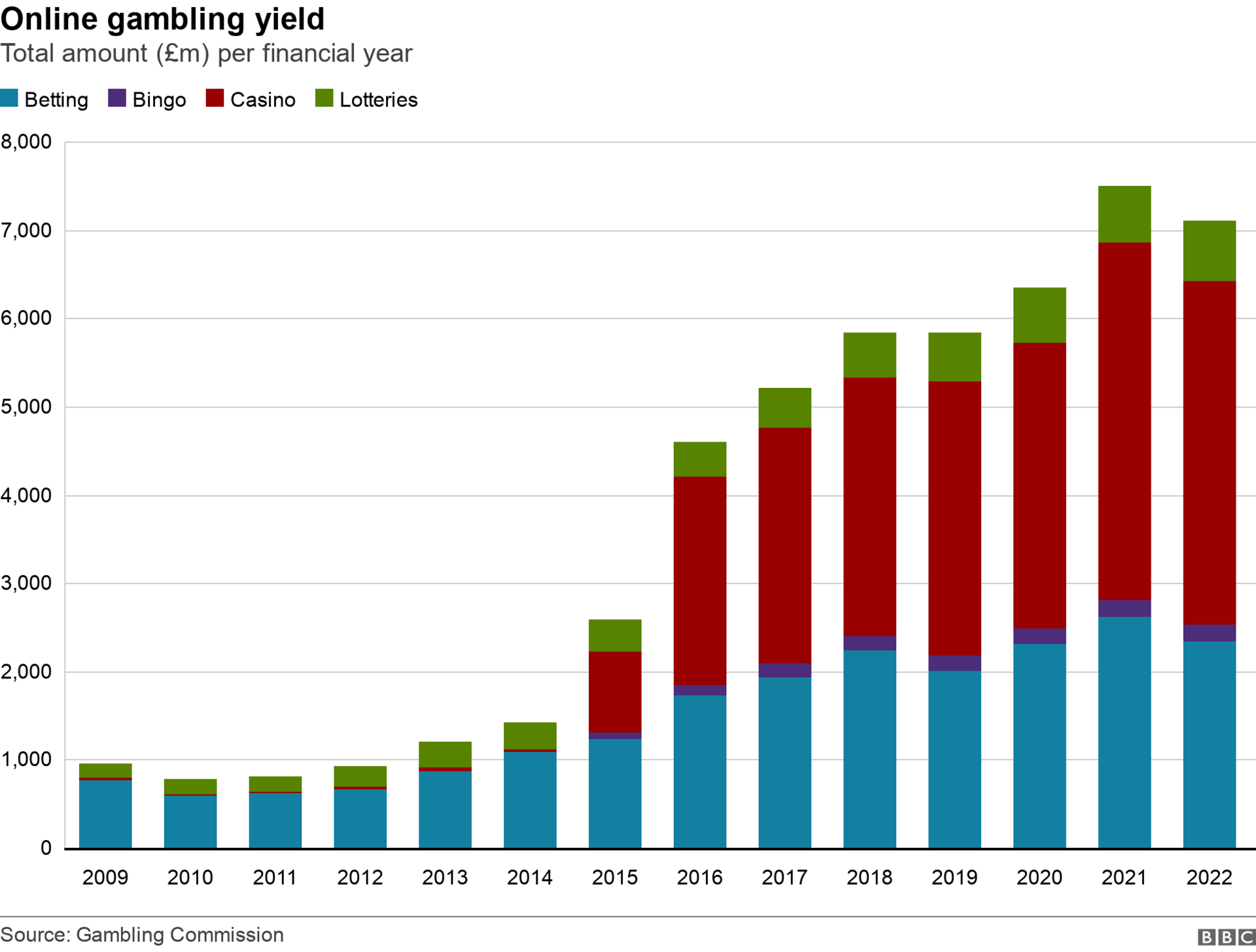
The added pressure of Christmas can also affect the mind of a problem gambler, Mr Grimes says.
A 2019 study, external by GambleAware found that problem gamblers were five times more likely to have suicidal thoughts and eight times more likely to try to take their own life.
"Christmas is the most distressing and depressing time for people addicted to gambling - there's societal pressure to spend money," he says.
"When you're losing money gambling at the best of times the shame you feel is awful, and that is heighted at Christmas by the fact you're letting people down because you can't provide.
"In a cost-of-living crisis it is a shorter route to being at the end of your bank account.
"What happens with gambling addiction is you keep going to the point of extinction - that's where you have no money left and no options left, you either stop or you contemplate taking your own life."

Online casino games generate £3.9bn of the gambling industry's £14.1bn annual yield
Data published by NHS England, external last week, showed a 42% spike in referrals to gambling clinics. The clinics offer addiction therapy and treatments used on opioid users to reduce cravings.
But the rate of problem gambling halved from 0.6% of the population in 2020 to about 0.3% today, according to, external the Gambling Commission.
Each month 22.5 million people in the UK place a bet. According to the BGC, the "overwhelming majority do so perfectly safely and responsibly".
Dan Waugh, a partner at gambling consultants Regulus, describes the World Cup as "a little like the Grand National - you'll see people who don't normally bet place a bet, but then most stop gambling after the tournament".
"That certainly seems to be what happened after the last World Cup," he adds.
Since the 2018 World Cup, the yearly earnings from online gambling has increased by 18%. The number of people who took part in some form of gambling has remained relatively stable - between 42% and 46% of the population over the last six years.
"Anti-gambling campaigners warned of a 'perfect storm' when there was no live sport on TV during the pandemic, now they are warning of the same because the football is on," Mr Waugh said.
Mr Waugh, who previously worked as a director at Britain's leading operator of casinos and bingo clubs the Rank Group, says: "Conditions of economic stress are likely to make people more vulnerable in relation to a range of mental health disorders... we should be concerned about mental health in general."
Government proposals
Proposals to restructure gambling laws have been postponed through most of 2022. The 2019 Conservative party manifesto, external promised to bring up to date "analogue laws" for the digital age.
Former PM Boris Johnson repeatedly delayed publication of proposals, until he was eventually ousted as leader in July. The white paper was then left on the shelf during Liz Truss' 45 days in office before Rishi Sunak promised to look again at the content of the plan.
The policies are the culmination of a review announced in 2019.
Now proposals could be released around the new year, and a policy document is "currently undergoing ministerial write-round", one source told the BBC.
But Carolyn Harris, chair of the All Party Parliamentary Group on Gambling Related Harm, said the government need to take "urgent action".
Ms Harris said new legislation must "ensure people do not have yet more money taken from them by online gambling companies who continue to rake in vast profits from punters, many of whom are struggling to pay their bills".
- Published23 January 2020
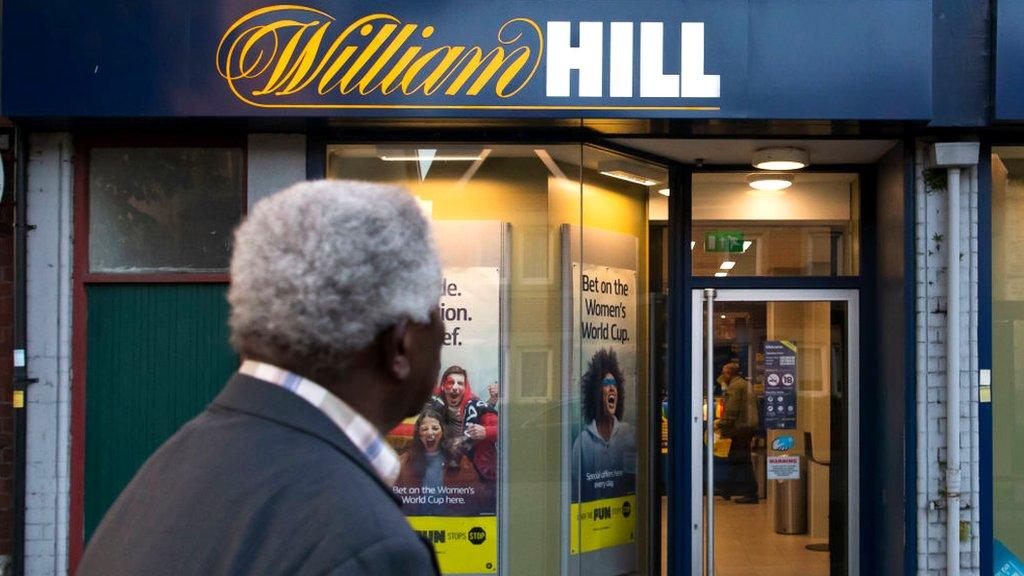
- Published19 November 2022

- Published7 May 2021
